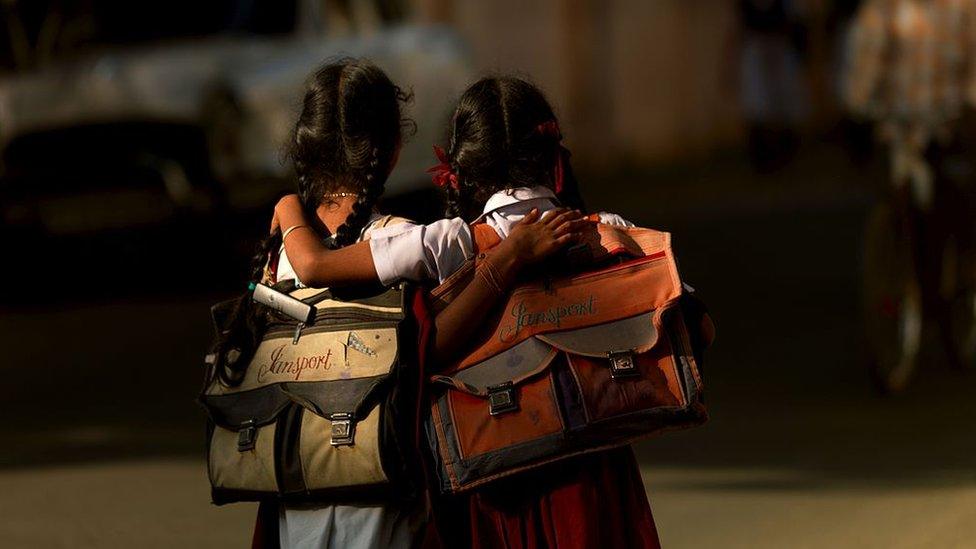Covid in India: Tackling lack of online learning in Delhi's slums
- Published

Pencils and books were provided for the kids in Devanshi's classes
"The girls just wanted to know why their brothers could be educated but they're made to go to kitchens."
During the coronavirus pandemic, Devanshi Ranjan has taught over 1,000 children, mainly girls, who weren't able to access education across the slums of New Delhi in India.
For her efforts, the 21-year-old won the Diana Award, set up in memory of Princess Diana to honour young people who work to improve the lives of others.
Children from poor households across the globe have struggled with the cost of online learning during Covid.
In India, the lack of access is often worse for girls, with some research suggesting millions of girls, external could drop out of secondary school as a result of the pandemic. Some may not return to education because of issues such as poverty and child marriage.
Devanshi tells Radio 1 Newsbeat how sexism, gender inequality and her experience of harassment all motivated her to help.
'The burden of housework'
While at university, Devanshi's spent her spare time volunteering for the Ladli Trust Foundation to help underprivileged people. During Covid the non-profit organisation had a drive to help children access education.
Devanshi says it became a "personal" mission for her.
"I've seen the women in my family, their lives and the struggle they've faced because they're not literate or aware about how to live the way they want."
A report by India's centre for budget and policy studies, external found 71% of girls reported doing domestic chores during the pandemic, compared to 38% of boys. Access to a phone was also 11% greater for boys.
"Girls are facing the burden of household duties, just to sustain themselves for a meal a day. They also have to take care of children because of overcrowding in families," Devanshi says.

Devanshi has been volunteering for a non-profit organisation while studying for her degree
At first, Devanshi found that most young girls she was teaching didn't "care about learning maths or English".
"They wanted to know why their fathers leave them at home for days and not come back, why their mothers go to houses to work as household help, and then return home to face the brunt of domestic violence," she says.
"We had to help break this down step-by-step, and then come to the part where we encourage them to take classes and continue with them regularly."
The foundation set up mobile, outdoor classrooms to provide education to children, including child beggars found at red-light districts and in slums.
Devanshi discovered some children had to be "taught from scratch" because they didn't know basic language skills such as the alphabet.
'Slut-shamed' at school
Harassment and sexism have, at times, threatened Devanshi's education.
"Every time I walk out of my house - and this is understood by most women worldwide not just in Delhi - I think about the strategies to defend myself, so you can survive in your journey," she says.
"Whether it's travelling home, going to university or using public transport, you're worried someone might grab you and you know people are staring at you."
She says moving to Lady Shri Ram College for Women - an all-girls institution - changed things for the better.
"I can't emphasise how safe I felt in that college compared to when I was in a mixed school, where you're being judged on your actions, the length of your skirt and even teachers would slut-shame students."
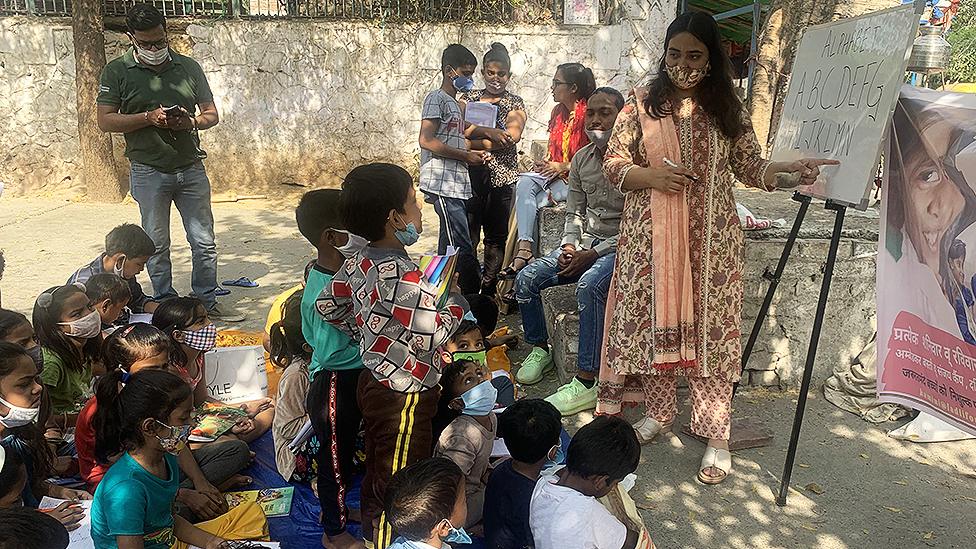
Devanshi taught maths and English, as well as running workshops on consent and child sexual abuse
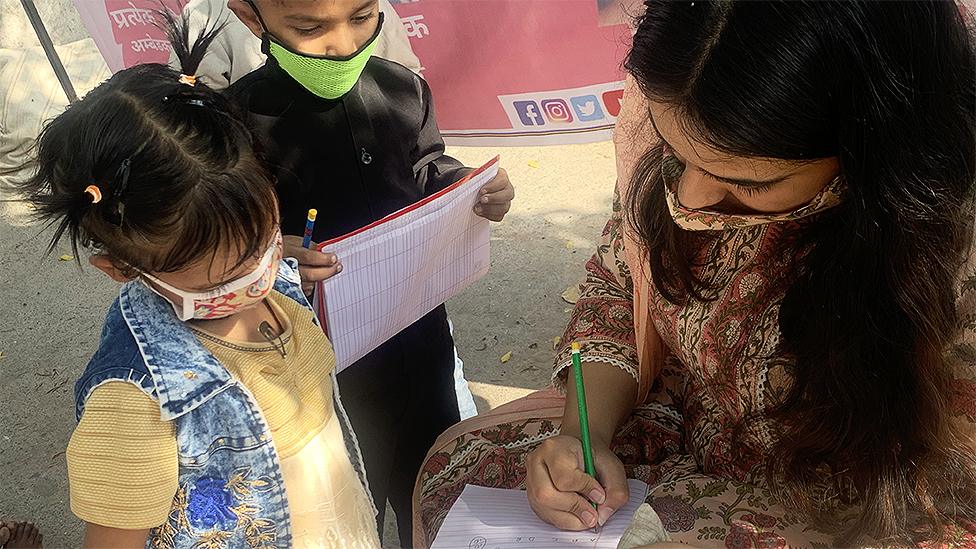
To help children facing these issues, Devanshi's hosted workshops on issues such as child sexual abuse, consent, sanitation and hygiene.
"Even with young children, we try to connect people living in the slums with the police, psychologists and professionals," she says.
"Being better prepared isn't a 100% safeguard against all the wrongs, but you're informed and it's an important step in the right direction."
India teachers get creative as Covid shuts schools
Schools are now slowly reopening in India, but Devanshi doesn't have any plans to slow down after receiving the Diana Award.
"Friends contacted me after the ceremony and kept saying 'you've made it', which didn't sit well with me."
Since graduating she's turned her focus to her own initiative, Project MicDrop, which aims to further gender equality and empower people through art, campaigning and events.
"I'd like to work even harder to represent the Diana Award and the community to make a difference."


Follow Newsbeat on Instagram, external, Facebook, external, Twitter, external and YouTube, external.
Listen to Newsbeat live at 12:45 and 17:45 weekdays - or listen back here.
Related topics
- Published4 June 2021
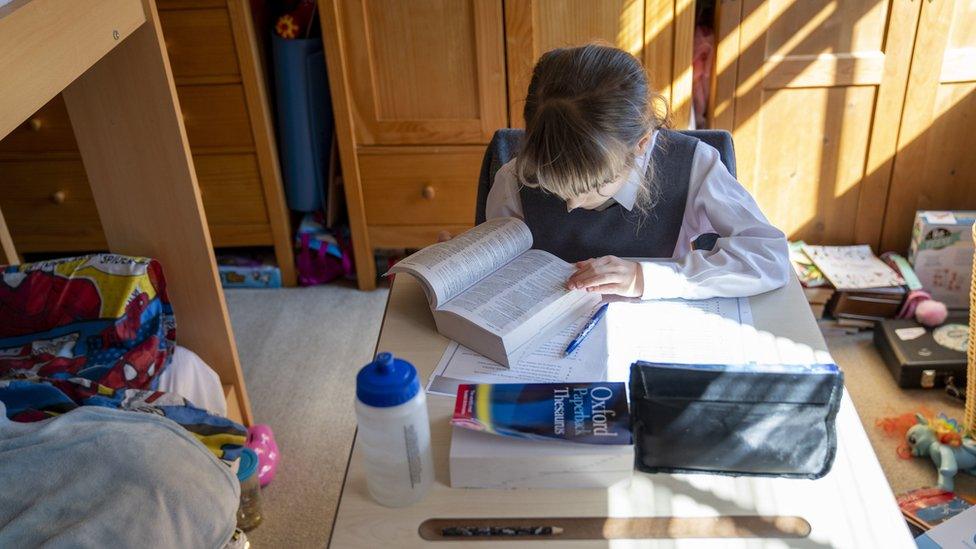
- Published12 October 2020
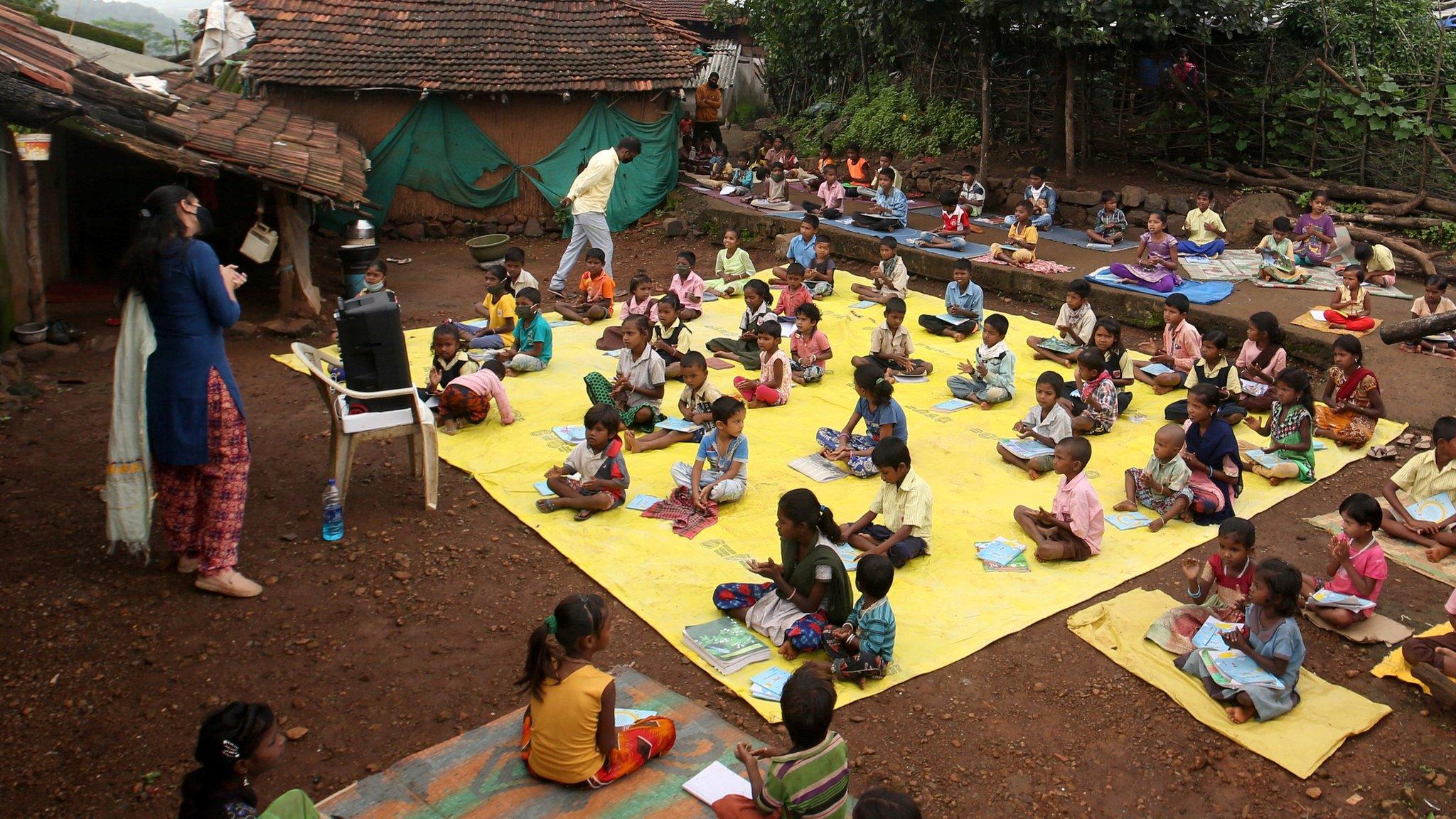
- Published23 July 2020
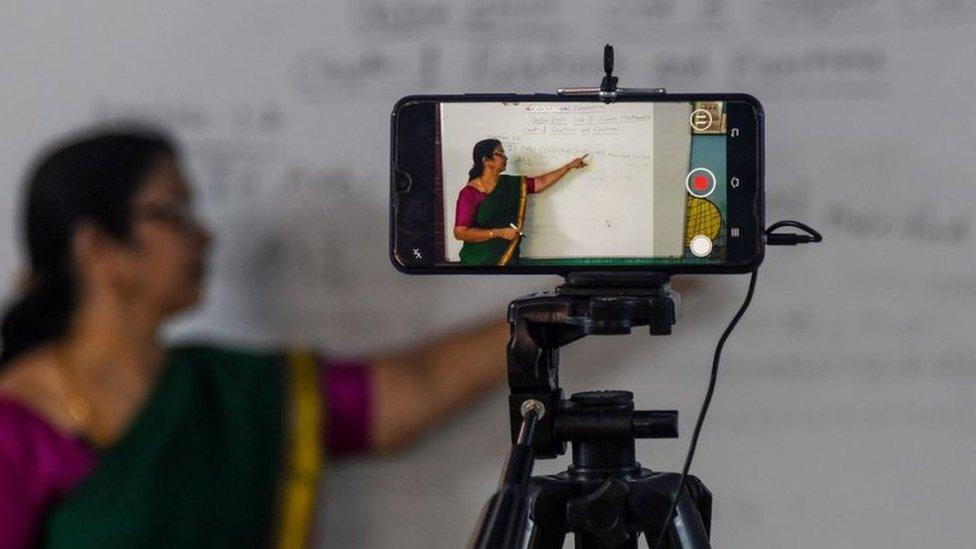
- Published9 May 2021
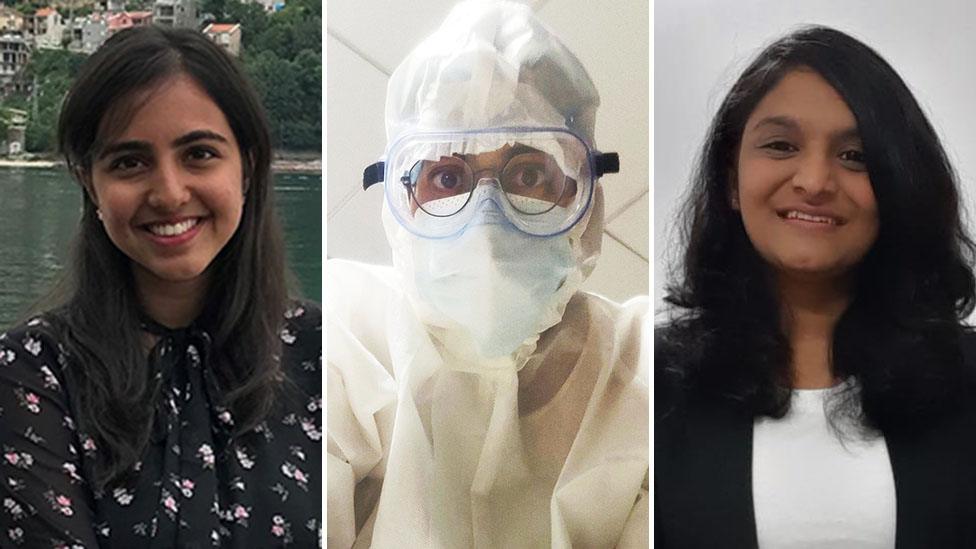
- Published22 April 2021
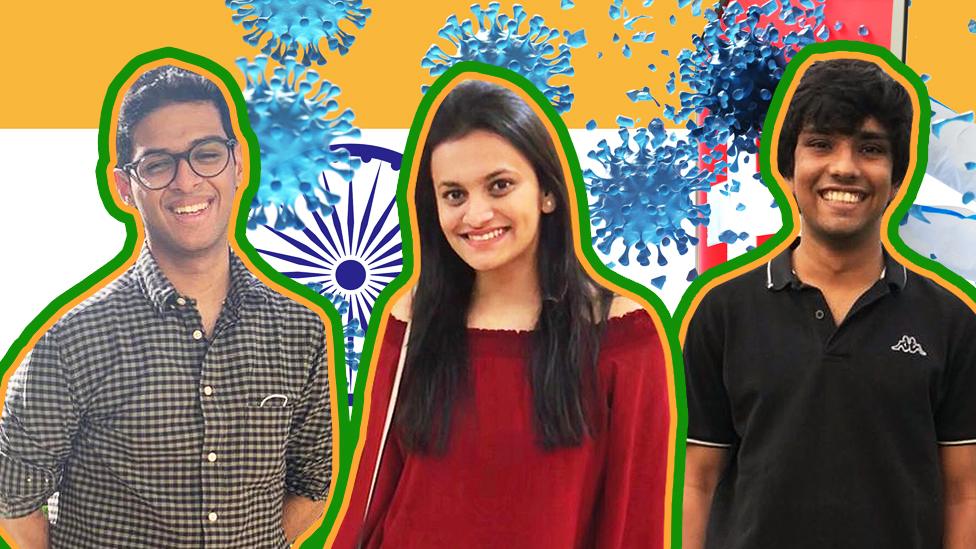
- Published29 January 2021
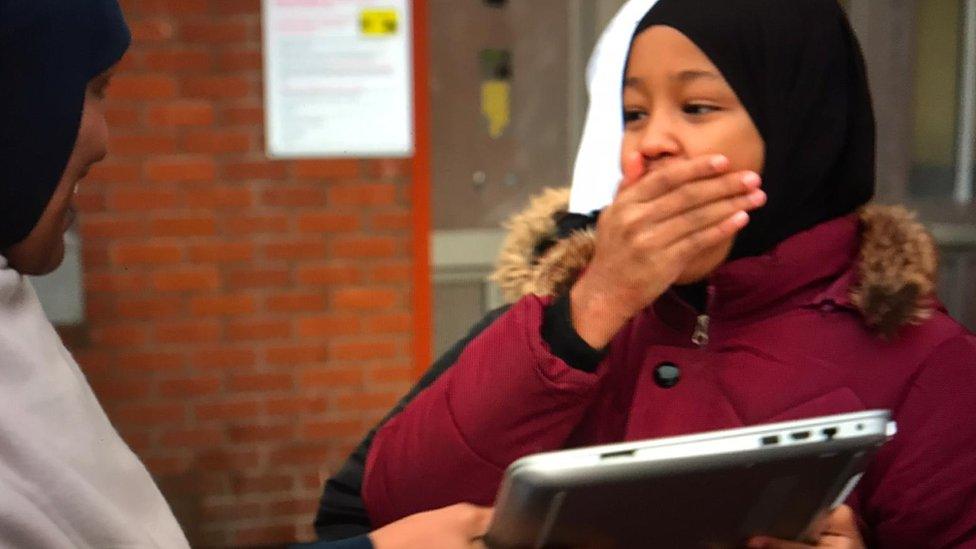
- Published18 September 2020
